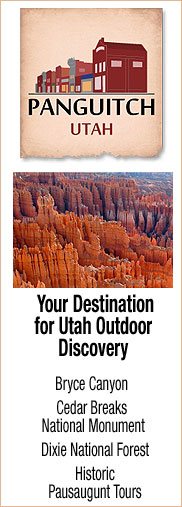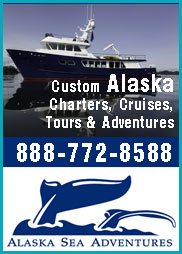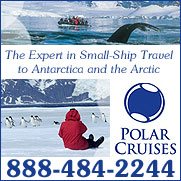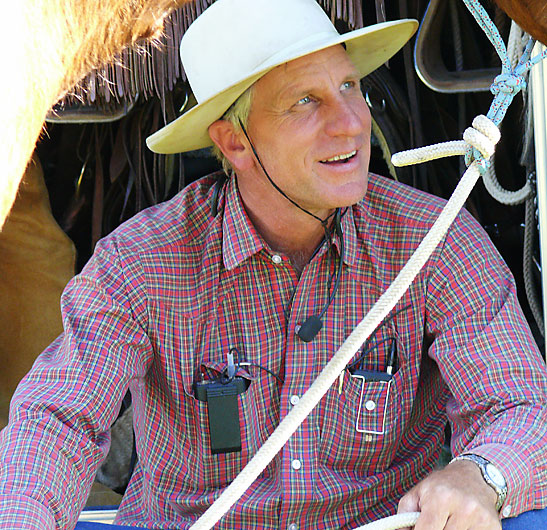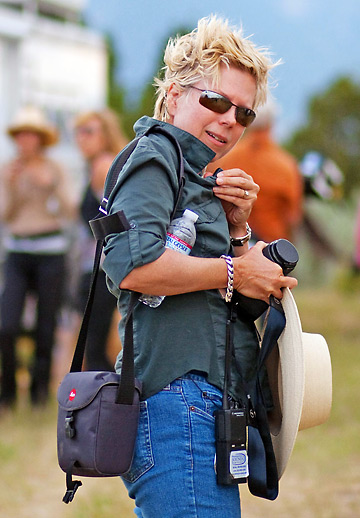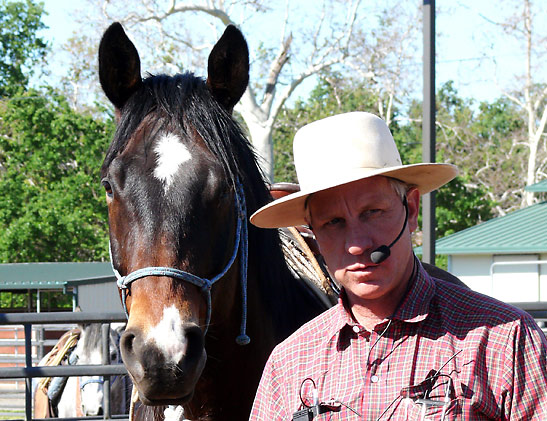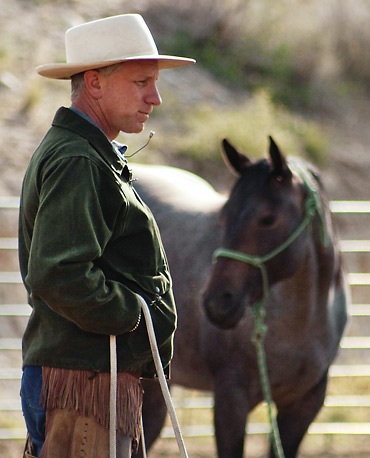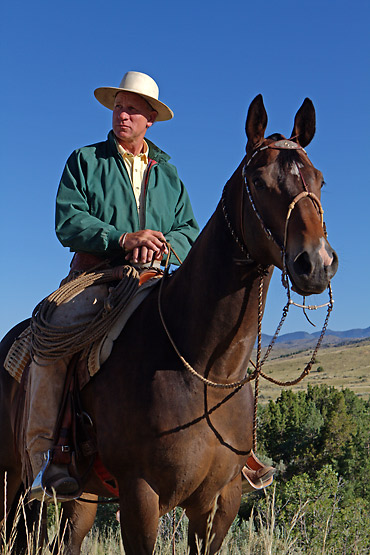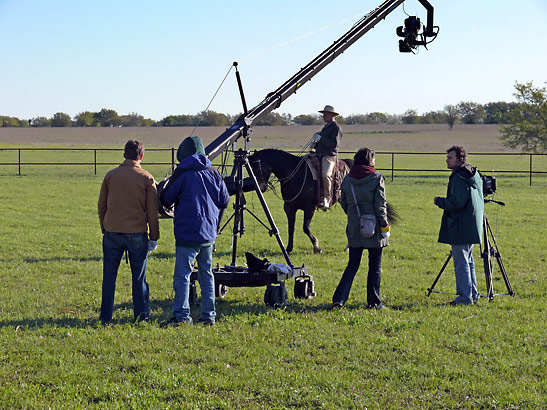 |
 |
|
 |

|
An Interview With…
Brannaman is the subject of “Buck,” a poignant, beautifully shot, compelling documentary by first-time director Cindy Meehl and garnered the prestigious Audience Award at this year’s Sundance Film Festival. Buck’s handling the problems with horses and their owners can easily be interpreted as a metaphor for how we handle our human relationships, as the same principles seem to apply. Brannaman’s beginnings were less than auspicious as he and his brother, highly skilled at performing rope tricks at rodeos, grew up being savagely beaten by their alcoholic, sadistic father. They were removed from the home by Social Services at a young age and were raised by loving foster parents who literally saved their lives and put Buck on a positive road that would take him through life. Dressed in traditional cowboy attire, the soft-spoken Buck sat for an exclusive interview with your reporter and the following text has been edited for print purposes. Cohn: You’re on a hectic nationwide tour publicizing “Buck.” Are you getting tired? Buck: Someone in New York, who thought I was exhausted, asked me that question. I told him that I worked really hard in my life and know what doing a day’s work is and while I might run a little short of sleep sometimes, this was far from being hard work. (laughs) Cohn: How was your New York experience? Buck: I was apprehensive about New York because I knew I didn’t exactly blend in. (laughs) But, I couldn’t have been more warmly received and I realized that there are some things about all of us, no matter where we’re from, that connects us as humans. We’re looking for the same sorts of contentment in our lives and while some people are searching a little harder than others, we’re not all that different. So at this point, I don’t mind much we’re we go because I know I’m going to be around people who seem to care about the same things I care about. Cohn: Just about all the screenings of “Buck” at Sundance were sold out and there was major buzz about the documentary. What was that like for you? Buck: I had never been to anything like that before so I didn’t really know what to expect. I was overwhelmed that after every screening and Q & A there, was a standing ovation. We wanted to film to touch the hearts of people in general and I guess it did. Cohn: You have quoted as saying, “Your Horse is a mirror to your soul.” In your clinics, do you have a different approach to each horse and it’s owner? Buck: You might measure your approach to a horse the same way as your approach to people because there are going to be some horses, like some people, who might be inclined to tune you out. For those kinds of horses you might need to have your presence change in way that you appear to be ten times your size in order to be effective. On the other hand, you might have a horse that is very timid or fragile and it wouldn’t take much to get him lost or afraid. In that case, you might have to appear to be one-tenth of your size. Theoretically the human is supposed to be the smart one so as you get acquainted with the horse, you explore what it’s going to take for him to understand what you would like him do, with as little trouble as possible. You’re trying to avoid conflict, not trying to create it.
Cohn: Do you size up the “horse” problem pretty quickly? Buck: When people bring their horses to my clinic, you see how they get along with each other. If they’re not getting along, it’s easy to identify anything the owner is doing that’s contrary to the horse’s nature. The things they might learn about themselves, that are either undesirable or desirable to their horses, will eventually result in the horse’s acceptance of them. The things that change within you will impact your entire life with regard to how you deal with and approach problems. There have been so many times over the years where people have told me that they thought they were coming to one of my clinics just to get a little handier with their horses. In the beginning, I would tell them that I thought that’s all they needed, but it usually turned out to be about something else. Cohn: How is your technique different from horse training methods from the past? Buck: The conventional wisdom forty or fifty years ago, was to create conflict. You conquer and win. Unfortunately that’s how some people still deal with each other. You can’t make something happen with a horse, but you can fix things and let it happen. You think of setting things up in such a way that eventually your idea becomes his. That’s a hard thing for people to get through their heads because they think the harder they push and the more they try to impose their will, that that’ going to pay off, but it doesn’t. When they learn that it’s not going to pay off, then they may start to rethink how to handle situations not only with their horses, but with human beings as well.
Cohn: You came out of a very abusive childhood and I’m wondering if people talk to you about their experiences? Buck: It’s amazing how many people I’ve connected with through this documentary and my book. So many folks have had dark things happen to them and they come up to me and tell me they are glad that I’ve talked about this and feel like we’re kindred spirits. Cohn: Many children who come out of abusive homes grow up and become abusers. What happened to you that you became this gentle, loving spirit? Buck: I do get this question from time to time because so many kids who were abused wind up in jail or having a life of despair. In my case, when I first went to live with my foster parents, I didn’t think they could do me much good so my first refuge was the horse. But, my foster parents offered friendship and a place to hide, which I hadn’t experienced before. Gradually, as I got more comfortable and realized that they wanted the best for me, and didn’t mean me any harm, I stopped being afraid. My foster dad, as much as I didn’t think he was that wise at the time, never talked about what we had been through. He just dealt with the moment and gave us direction and purpose. He would praise us when we did well and chew us out, just like any other kid, if we didn’t do so well. But even when he chewed us out, we knew that he still loved us. The influence both of them had on me at twelve years old was a profound turn in my life and set me on the right course.
Cohn: Do you have a special turning point memory? Buck: One summer we were stacking hay and you’d have a little bit of time in between loads where you could sit on the haystack. I don’t know why the thought came on me, but I realized that because of what I had been through that some people sort of felt sorry for me. I grew up in a small town and everyone knew what my father was doing to us. I thought that since they felt sorry for me, I could pretty much get away with anything and everybody would make excuses for me. I really thought about that and felt that for once in my life I didn’t want to be any different from anybody else. I thought this might be my chance to grow up like all the other kids and maybe I could figure out what it would be like to just be a normal kid. So, I just wouldn’t accept sympathy. Cohn: There are scenes of you and your brother doing rope tricks as little kids. You knew if you made a mistake you would get a beating. Can you remember what you felt like? Buck: The dread would sometimes be worst than the beating and it’s crazy because he would beat us up like he was in a bar fight. It wasn’t just a whipping. It was like he was beating up a full-grown man. There would be times when he’d say, "When we get home you know what’s comin." You knew there was nothing you could say or do to change his mind. Guaranteed it was going to happen and it always did. You almost wanted to tell him to stop the truck and let’s just get it over with. They say God won’t give you anymore than you can handle and there have been a few times in my life where I thought you know I really don’t want to know how much I can handle. (laughs) Cohn: Why did you write your book? Buck: Probably the biggest reason why I wrote “Faraway Horses” was that I wanted people to know that you can change the course of your life. The course that was set for me early in life was going in the wrong direction and it would have been a whole lot easier to end up just like my dad and yet I’m nothing like him. I wanted people to know that they can do something about it and didn’t have to accept the hand they were dealt. No matter who might have tormented you, the one thing they can’t ever take away from you is that at some point in your life you’re given an opportunity to make choices and you have to own the path you take because there comes a time when you can no longer blame other people for where you are and have to take charge of your own life. Cohn: Your mother died when you were eleven. Did she try to protect you and your brother? Buck: It was a very touchy situation for her. She was from a traditional German family and would have been disowned if she had left my father regardless of his cruelty. So she stayed and held the family together because she thought that was the best thing. Many times over the years people asked me why she stayed when she knew what was going on. She had no education or any way of making a living and had nowhere to go. In the late 60s and early 70s if someone like her left, she would get blamed. Society would wonder what was wrong with her that she couldn’t keep her family together. Times have changed, thanks goodness. She lived a very sad life being married to man who was mistreating his children. Cohn: Do you talk to other people who came out of the foster care system? Buck: This isn’t a direct answer because it involves my mother. I was asked to do a lecture for the foster care providers in Montana. When I pulled into hotel parking lot at the Red Lion Hotel in Helena, the answer to why my mom stayed suddenly dawned on me. I finally remembered, after all these years, that she had been there to take a one-week real estate course to get her real estate license. She had passed the exam and was very proud of that. Sadly, she died two months later and never sold a house. I think she was planning on leaving and saving all of our lives, but never got the chance to follow through. Had I not gone there for that conference, I never would have gotten that answer. Cohn: Looking back on your life, did you ever imagine it would enfold this way and that you would be able to heal so many people through their horses? Buck: You know we’re all trying to figure out how get through life and I’m very humbled that I’ve been put in a position where I might be able to do something positive for somebody and hopefully come up with saying the right thing at the right time. Cohn: What would you say to someone who’s been abused or is the abuser? Buck: When I was a little guy I stuttered terribly. All the kids made fun of me, but I was a pretty good trick roper and performer as long as I didn’t have to say much. I realized years later that it had a lot to do with my environment. So I had to cure my own stuttering and when I saw “The King’s Speech” with my family, I thought ‘I feel you man.’ So, do the right thing. No matter where you come from, deep down you still know right from wrong and you don’t have to wait for someone to make the right choices for you. Cohn: In the film there was one very difficult, tragically disturbed horse. What message do you want people to take home with them, especially as it applies to parenting? Buck: What I wanted everyone to learn was that whether you have horses or dogs or kids, responsibility comes with that and it’s not just a matter of putting a roof over their heads and keeping them fed, but you also have a responsibility to be their caretaker and to take care of them. You need to teach them how to fit into the world, what they need to do to survive, and to teach them right from wrong. I’m happy because some people who have seen “Buck” saw that I could have ended up permanently damaged or destroyed like the yellow horse in the film. I’m pleased that they understood the underlying point and got the bigger picture.
Cohn: What’s next for you? Buck: In about a month, I’ll be back to being me – driving down the road, working with horses and people. I’m not really running away from anything – I’m running to it. I wrote this book “Faraway Horses” a few years ago that really tells the story in depth about my brother and me as kids, covering some of the very dark things we went through. I wanted to encourage people that even if you might have a bad beginning, you don’t have to have a bad ending. Cindy’s documentary has brought up interest in the story and we’re actually fairly close to doing a feature film based on my book. It’s really not going to be a horse film, although there will be some of that because the horse really defines me, and has been such a great salvation and rescue for me. Working with horses sort of picked me and now that’s all I do. Cohn: It’s been a special pleasure meeting you. Buck: Likewise indeed. |
This site is designed and maintained by WYNK Marketing. Send all technical issues to: support@wynkmarketing.com

|


